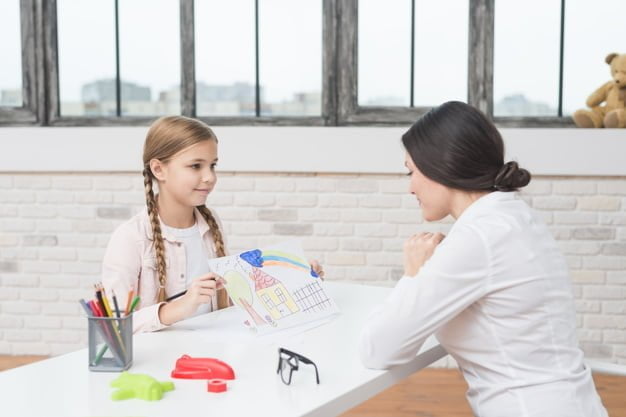Occupational Therapy Near me
Looking for Occupational Therapy treatment for Specially Challenged or differently abled child and Stroke, Neurological patient in: UTTAM NAGAR, VIKASPURI, JANAKPURI, DWARKA, NAJFAGARH, NANGLOI, PASCHIM VIHAR AND WEST DELHI
WHAT IS OCCUPATIONAL THERAPY
Occupational therapy (OT) is the use of evaluation and intervention to help people, organisations, and communities create, heal, or sustain functional tasks or occupations. Occupational therapists and occupational therapy assistants practise this allied health specialty (OTA). Occupational therapists (OTs) often work with people who have mental health issues, disabilities, accidents, or impairments.
The American Occupational Therapy Association defines an occupational therapist as someone who “helps people across their lifespan participate in the things they want and need to do through the therapeutic use of everyday activities (occupations). Common occupational therapy interventions include helping children with disabilities to participate fully in school and social situations, injury rehabilitation, and providing supports for older adults experiencing physical and cognitive changes.”
Occupational Therapy Improves an Individual’s Independence

This is the biggest reason Occupational Therapy is beneficial. People want to take care of themselves. They want to be able to complete personal tasks, such as bathing, dressing, and going to the bathroom with as little assist as possible.
OT is the only therapy whose primary focus is to improve specific self-care skills. These skills include: eating, dressing, toileting, bathing, completing hygiene tasks, getting into the tub, getting on to the toilet, and other necessary tasks such as fixing meals.
AREA OF PRACTICE
- Providing splinting and caregiver education in a hospital burn unit.
- Facilitating handwriting development through providing intervention to develop fine motor and writing readiness skills in school-aged children.
- Providing individualized treatment for sensory processing difficulties.
- Teaching coping skills to a child with generalized anxiety disorder.
- Providing splinting and caregiver education in a hospital burn unit.
- Facilitating handwriting development through providing intervention to develop fine motor and writing readiness skills in school-aged children.
- Providing individualized treatment for sensory processing difficulties.
- Teaching coping skills to a child with generalized anxiety disorder.
- Providing splinting and caregiver education in a hospital burn unit.
- Facilitating handwriting development through providing intervention to develop fine motor and writing readiness skills in school-aged children.
- Providing individualized treatment for sensory processing difficulties.
- Teaching coping skills to a child with generalized anxiety disorder.
- Analyzing task, modifying activities and environments to minimize barriers to participation in meaningful activities of daily living.
- Addressing physical and mental aspects that may hinder a person’s functional ability.
- Provide intervention that is relevant to the client, family, and social context.
- Contribute to global health by advocating for individuals with disabilities to participate in meaningful activities on a global level.
fAQS
Physical therapy and occupational therapy both help improve kids’ quality of life, but there are differences. Physical therapy (PT) helps with:
- pain
- strength
- joint range of motion
- endurance
- gross motor skills (large-muscle movements made with the arms, legs, feet, or entire body)
Occupational therapy helps with:
- fine motor skills (small-muscle movements made with the hands, fingers, and toes, such as grasping)
- visual-perceptual skills
- cognitive (thinking) skills
- sensory-processing problems
OTA’s most commonly work in:
- assisted living or skilled nursing facilities
- rehabilitation facilities
- schools
- hospitals
Your occupational therapist will complete a comprehensive assessment, including asking you about your symptoms (i.e., physical, cognitive, emotional) and exploring functional issues in detail. This helps the occupational therapist understand what it is you need and want to do in your everyday life, as well as what barriers may be in the way of achieving your goals. You and your occupational therapist will develop a treatment plan, which can include specific treatment interventions (e.g., adaptive equipment, activity grading), education, and targeted rehabilitation exercises and strategies to get you back to your activities that matter most.
